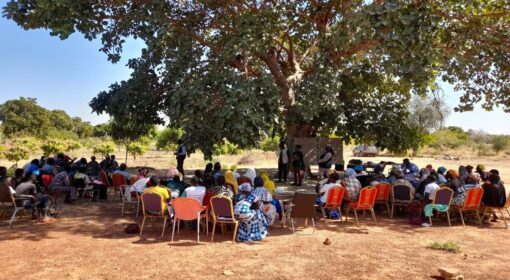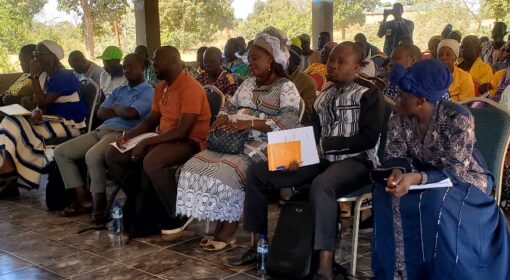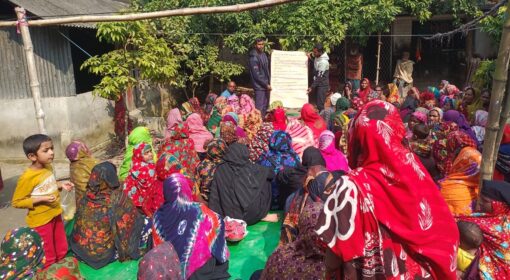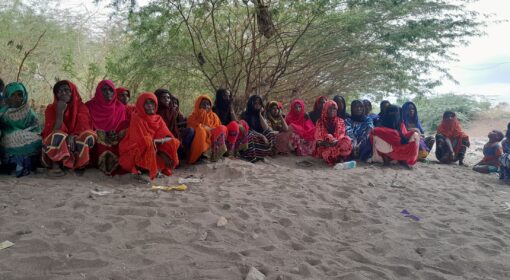by Abdoulaye Ouedraogo, ZARE Aïda, Femke Van Woesik
This blog is part of a dossier on locally-led adaptation, featuring insights and lessons from the Reversing the Flow (RtF) program. RtF empowers communities in Bangladesh, Burkina Faso, Ethiopia, Kenya, and Sudan to build climate resilience through direct funding and a community-driven, landscape approach.
Since 2008, APIL (Action pour la Promotion des Initiatives Locales – https://www.apilaction.net/) has led an innovative project aimed at strengthening the economic autonomy of rural women in the Sanmatenga province, in Burkina Faso, through sheep fattening. The intervention was based on an integrated strategy, combining functional literacy and simplified financial management.
Initial problem
The women of these communities, mostly non-literate, practiced sheep fattening without keeping financial records. Their business consisted of buying sheep on the market, feeding and caring for them for about six months before reselling them. However, in the absence of tracking expenses (purchase of animals, fodder, food supplements, veterinary care, etc.), they were not able to determine a minimum selling price.
This lack of financial control exposed them to significant losses. Often, they entrusted the sale of their sheep to members of their family (husbands, brothers or sons), who, taking advantage of their ignorance of the real costs, gave them an amount lower than the real value of the animal, pocketing the difference for their benefit.

APIL intervention approach
To remedy this situation, APIL set up a functional literacy program, aimed at teaching women to read, write and specially to keep management records. This program was accompanied by training in simplified accounting, adapted to local realities and provided in vernacular languages.
A simple tool was introduced
A notebook divided into columns, allowing revenues and expenses to be centralized. The women recorded the purchase price of each animal, as well as all expenses related to its fattening. At the end of the fattening cycle, they were able to precisely calculate the total cost of their investment. This allowed them to set a minimum selling price considering a profit margin, and thus avoid losses.

Results and impacts
This intervention had impacts on the economic management of women’s activities. By being better informed, they were able to negotiate the sale price of their sheep with complete autonomy, even when they delegated the sale to a third party. The transparency and traceability of transactions have reduced the risk of fraud or embezzlement, thus strengthening their self-confidence and their control over their resources.
In addition, the success of this initiative has sparked enthusiasm for literacy. Many women, initially reluctant or not very interested, quickly joined the program to improve the management of their activities. This mastery of financial management allowed them not only to increase their income, but also to reinvest in their activities, thus contributing to real economic empowerment.
This experience offers valuable insights for the broader transition toward locally led development under the RtF program. As the program channels direct funding to communities, ensuring that local groups can manage and track resources in a practical and transparent way becomes essential. The notebook-based accounting tool used by APIL provides a promising, low-barrier option for financial monitoring that aligns with local capacities. It can support communities in recording funds received, tracking expenses and inventories, and maintaining oversight of their resources. If requested by communities, APIL stands ready to offer training and follow-up support in simplified accounting methods. This kind of tailored, locally relevant capacity strengthening helps lay the foundation for responsible resource management and long-term resilience—key pillars of the RtF approach.
Illustration of an accounting notebook





